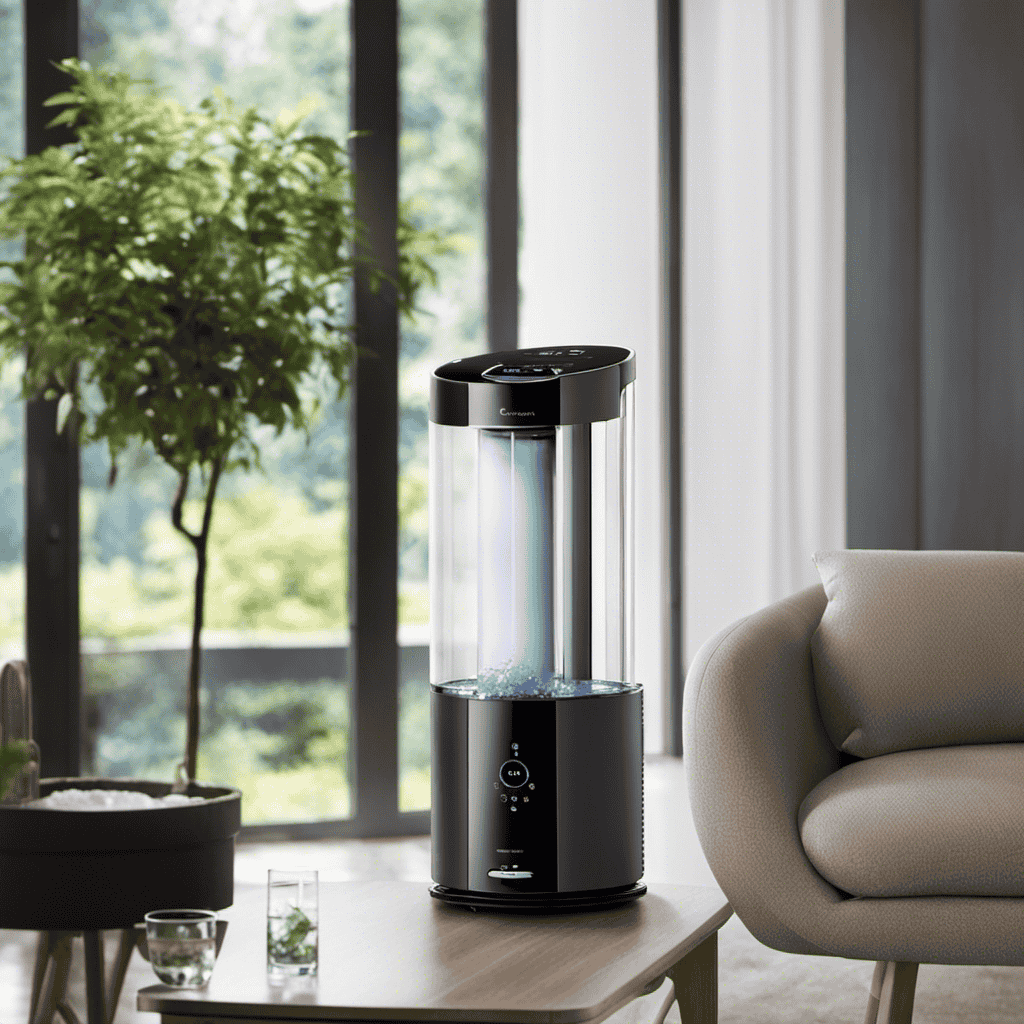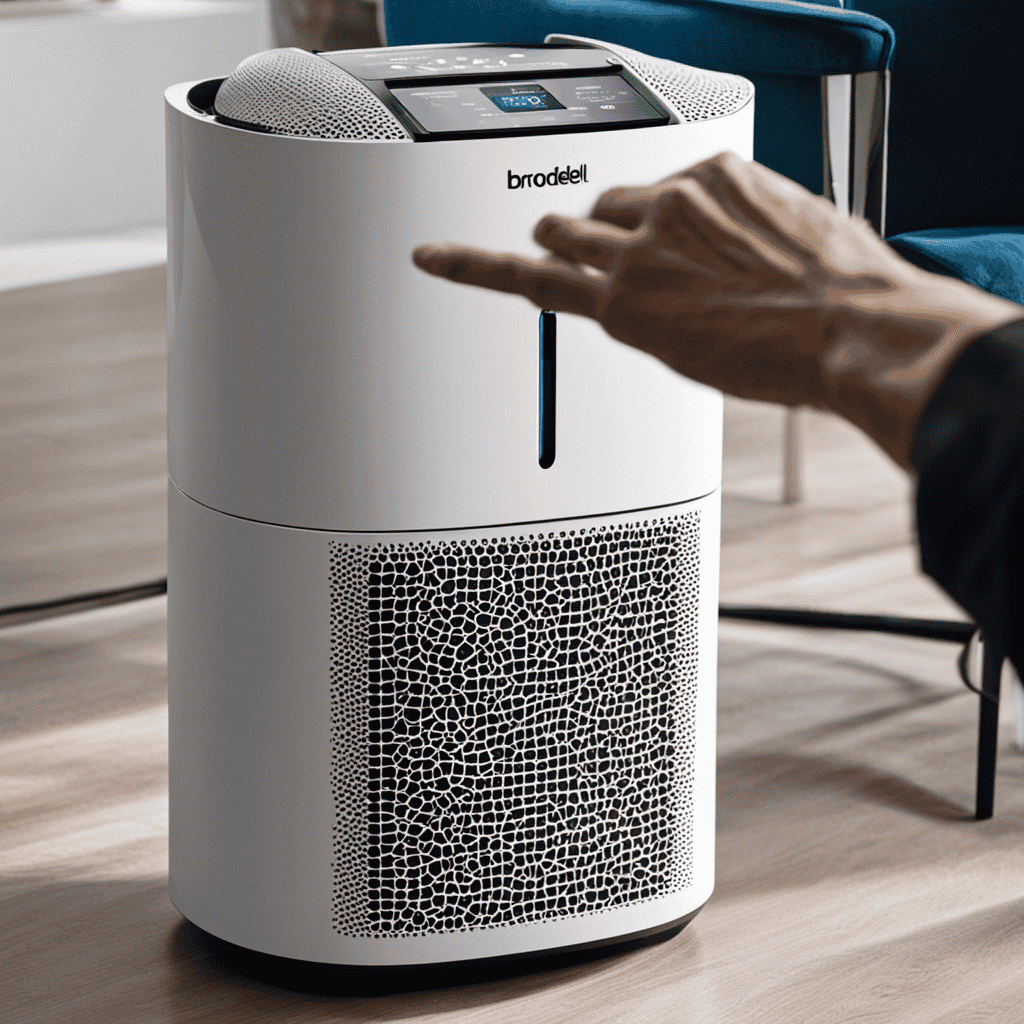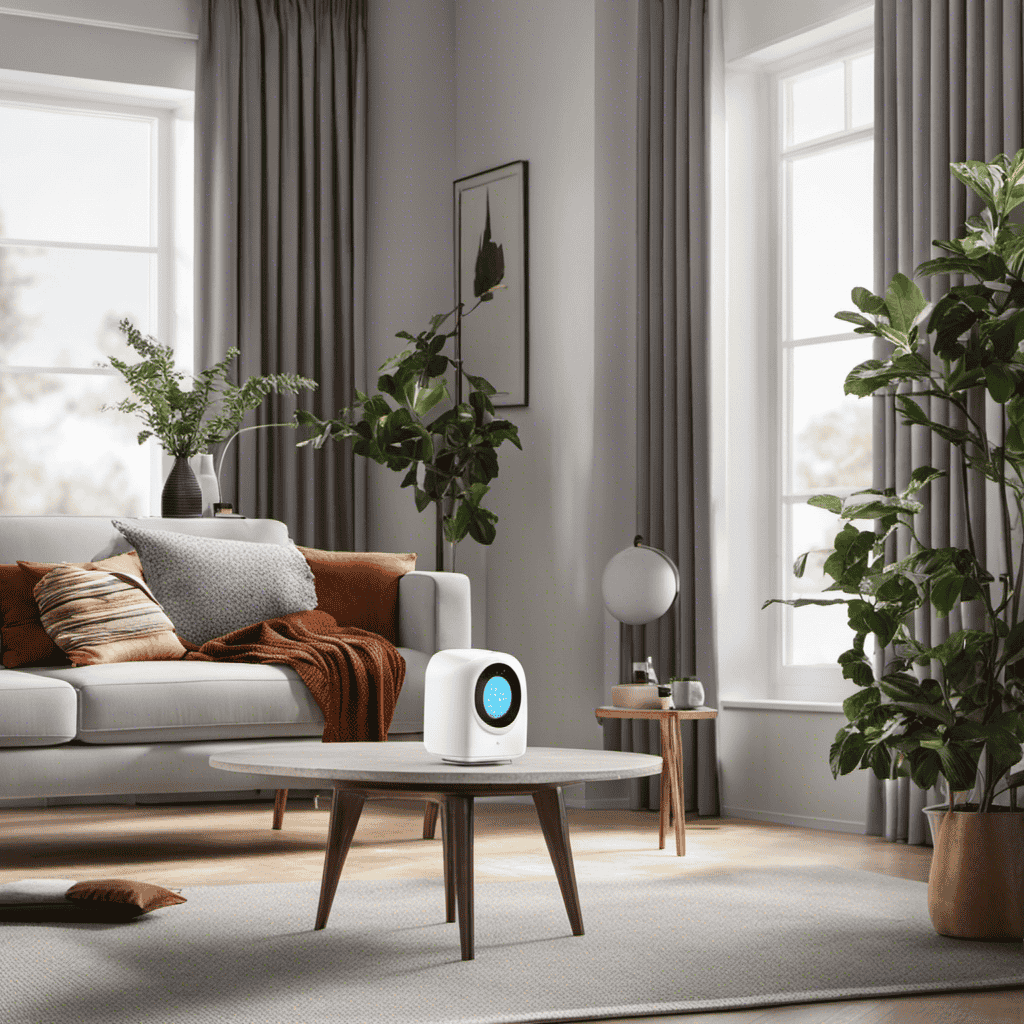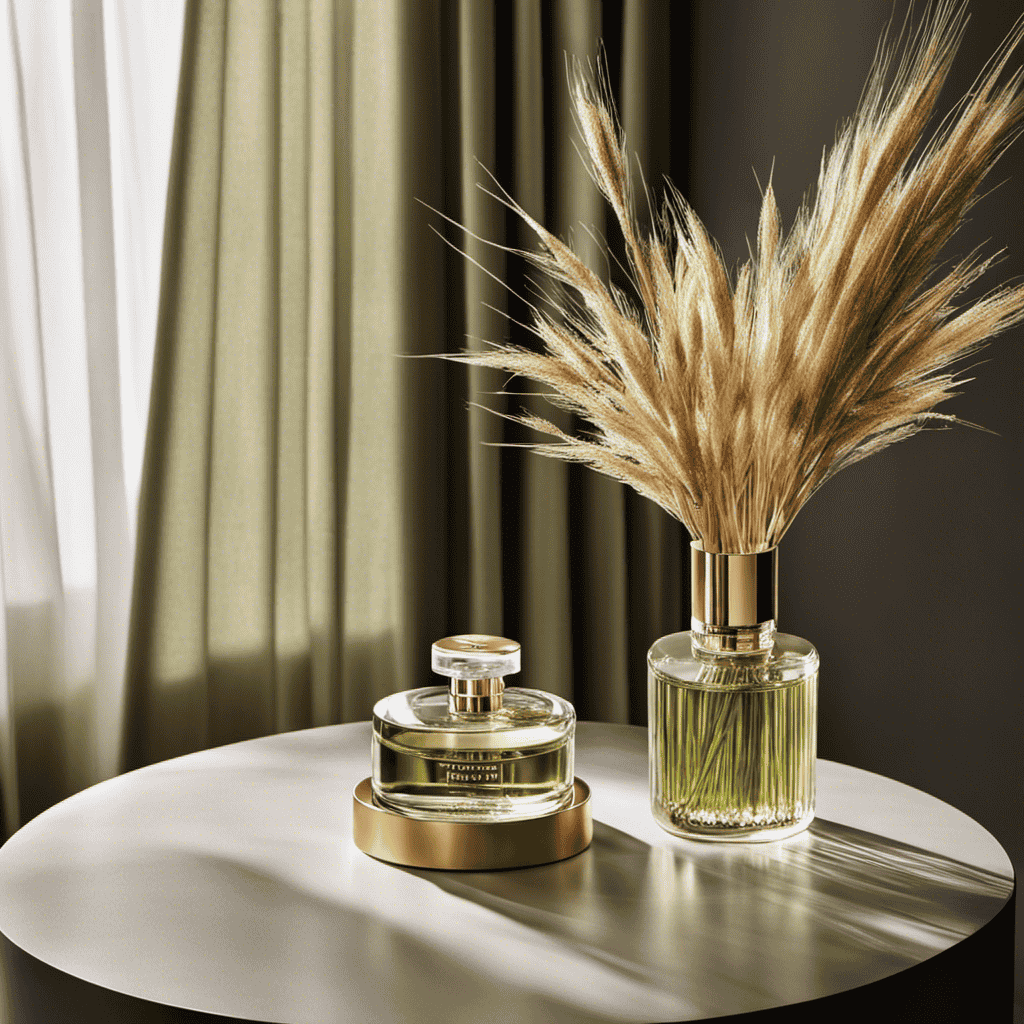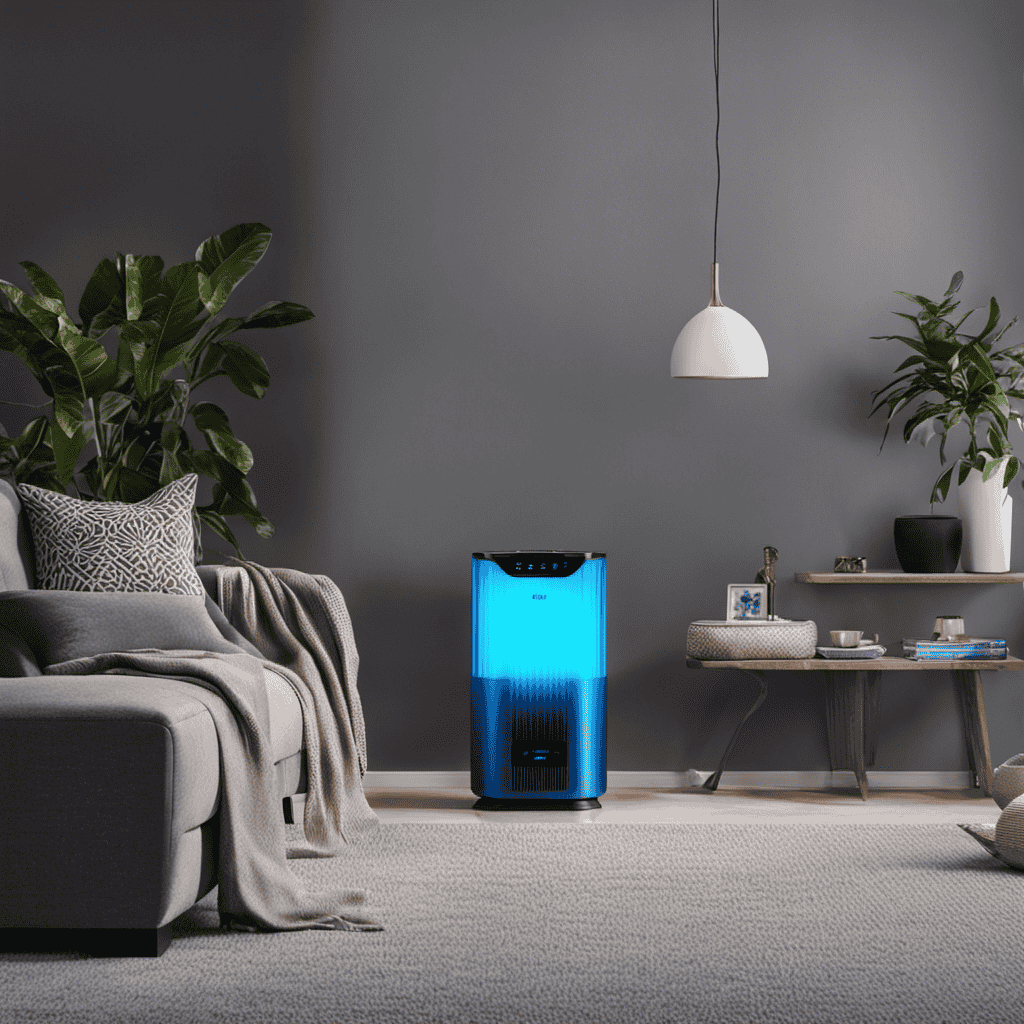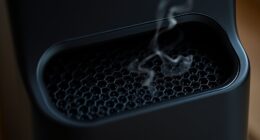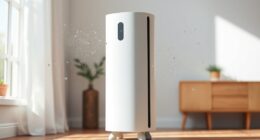I have always been intrigued by the ability of water to purify and rejuvenate. That’s why when I stumbled upon the Rainmate Air Purifier by Rainbow, I was instantly captivated. This revolutionary product not only cleanses the air but also incorporates water to boost its efficacy.
But the question remains: how long will the Rainmate Air Purifier last before it needs more water? In this article, we will delve into the importance of water in this purifier, understand its water consumption, explore factors affecting its duration, and provide tips to extend its lifespan between water refills.
So, let’s dive in and uncover the secrets behind this remarkable air purifier.
Key Takeaways
- Water acts as a natural and effective filter to remove airborne impurities in the Rainmate Air Purifier.
- The frequency of use, room size, and humidity levels affect the duration before needing more water in the purifier.
- Regular cleaning and maintenance of the water basin and filters optimize water consumption and extend the lifespan of the purifier.
- Using distilled water and running the purifier on lower settings can help maximize efficiency and reduce water usage.
The Importance of Water in the Rainmate Air Purifier
You’ll be surprised by the importance of water in the Rainmate air purifier. Water plays a crucial role in improving indoor air quality and offers several benefits in air purification.
The Rainmate air purifier utilizes water as a natural and effective way to remove airborne impurities. When the air is drawn into the purifier, it passes through the water, which acts as a filter. This process helps to capture dust, allergens, and other particles, effectively purifying the air.
Additionally, the water in the Rainmate air purifier helps to humidify the air, which can be especially beneficial in dry climates or during the winter months when the air tends to be drier. The humidification feature not only improves indoor air quality but also helps to alleviate symptoms of dry skin, irritated sinuses, and dry throat.
Overall, water plays a vital role in the Rainmate air purifier, contributing to its effectiveness in creating a cleaner and healthier indoor environment.
Understanding the Water Consumption of the Rainmate Air Purifier
The water consumption of the Rainmate air purifier can vary depending on usage. Understanding the water usage and maintenance requirements of this device is important for its optimal performance. Here are some key points to consider:
-
Frequency of use: The more you use the Rainmate air purifier, the more water it will consume. Regular usage may require refilling the water tank more frequently.
-
Room size: The size of the room where the purifier is being used can impact water consumption. Larger rooms may require more water to effectively purify the air.
-
Humidity levels: Higher humidity levels can increase water usage as the purifier works to maintain optimal moisture in the air.
-
Maintenance: Proper maintenance, such as regular cleaning and changing of water, can help optimize water usage and ensure the longevity of the device.
Factors Affecting the Duration Before Adding More Water to the Rainmate Air Purifier
To maximize the duration before adding water, make sure to consider factors such as frequency of use, room size, humidity levels, and proper maintenance. These factors can greatly affect the performance and maintenance of the Rainmate air purifier from Rainbow.
The frequency of use plays a significant role in how long the purifier can go before needing more water. If you use it continuously or for long periods, it will require more frequent refills.
The size of the room also matters as larger rooms may require more water to maintain optimal performance.
Additionally, the humidity levels in your area can impact the rate at which the water evaporates.
Lastly, proper maintenance, such as regular cleaning and changing of filters, can optimize the performance of the air purifier and extend the duration before adding more water.
Extending the Lifespan of the Rainmate Air Purifier Between Water Refills
By properly maintaining and cleaning your Rainmate air purifier, you can maximize its lifespan and reduce the frequency of water refills. Here are four ways to extend the lifespan of your Rainmate and reduce water consumption:
-
Regularly clean the water basin and replace the water: Cleaning the water basin prevents the growth of mold, bacteria, and mineral deposits, which can decrease efficiency and increase water consumption.
-
Use distilled water: Using distilled water helps prevent mineral buildup in the machine, which can clog the system and reduce its effectiveness.
-
Keep the air intake clean: Regularly remove any dust or debris from the air intake to ensure proper airflow and prevent strain on the machine.
-
Run the Rainmate on lower settings: Running the machine on lower settings reduces the amount of water used while still effectively purifying the air.
Tips and Tricks for Efficient Water Usage in the Rainmate Air Purifier
Regularly cleaning the water basin and using distilled water can help prevent mineral buildup and improve the efficiency of your Rainmate, reducing water consumption.
When troubleshooting common water related issues, such as low water level or water not being dispensed properly, it is important to check the water basin for any debris or clogs. Cleaning the basin with a mild detergent and warm water can help resolve these issues.
Additionally, using distilled water instead of tap water can prevent mineral deposits from accumulating in the basin and on the internal components. This will not only maximize the air purifying performance of your Rainmate, but also extend its lifespan.
Frequently Asked Questions
Is the Rainmate Air Purifier Capable of Functioning Without Water?
The Rainmate air purifier from Rainbow is not capable of functioning without water. Its functionality advantages include waterless operation, which means it needs water to operate efficiently and effectively.
Can Tap Water Be Used in the Rainmate Air Purifier, or Is There a Specific Type of Water Required?
Tap water can be used in the Rainmate air purifier, but using distilled water provides better results. Distilled water ensures better air quality by preventing mineral buildup and reducing the risk of mold growth.
How Often Should the Water in the Rainmate Air Purifier Be Changed?
The Rainmate air purifier can function without water for a limited time, but it’s best to keep it filled for optimal performance. Using distilled water ensures better air quality and prevents mineral buildup.
Are There Any Maintenance Tasks That Need to Be Performed on the Water Tank of the Rainmate Air Purifier?
There are maintenance tasks that need to be performed on the water tank of the Rainmate air purifier. Cleaning instructions for the water tank should be followed regularly to ensure optimal performance and longevity of the purifier.
What Happens if the Water in the Rainmate Air Purifier Runs Out Before It Is Refilled?
When the water in the Rainmate air purifier runs out, I simply refill it. To do so, I remove the water tank, fill it with clean water, and then place it back in the purifier.
Conclusion
In conclusion, the Rainmate Air Purifier is a remarkable device that effectively purifies the air in your home while also adding a touch of freshness. With its water-based filtration system, it efficiently removes airborne particles and odors.
The duration before adding more water to the Rainmate Air Purifier varies depending on factors such as room size, humidity levels, and usage frequency. However, by following some simple tips and tricks, you can extend its lifespan between water refills.
So, don’t let the rainy days get you down, let the Rainmate Air Purifier work its magic and breathe in the freshness! After all, every cloud has a silver lining.
